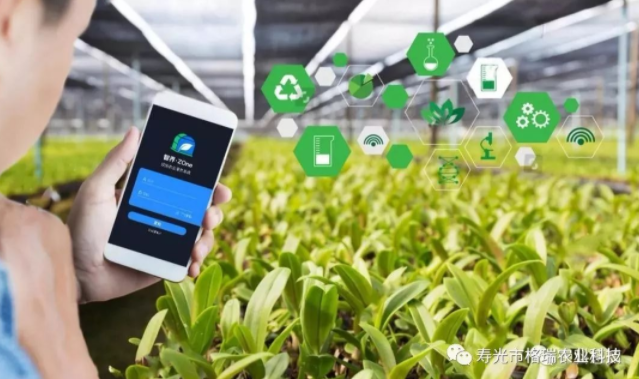|
Crops grow poorly, 90% of which are caused by carbon deficiency.Soil surveys in many agricultural districts and counties in my country show that after more than 40 years of "chemical agriculture" farming in large areas of farmland in China, the organic matter in the soil is almost exhausted. In the soil testing survey conducted by the national agricultural department in the past two years, 4,000-6,000 soil samples were taken from each county. The test results showed that the organic matter content of more than 2% was less than 5%, the organic matter content of less than 1.5% accounted for 80%, and nearly 15% of the soil samples had an organic matter content of less than 1%. As we all know, the carbon coefficient of organic matter is 1.724, that is, 1.724 organic matter has 1 carbon. Soil organic matter content is too low, which means that crops basically cannot absorb water-soluble organic carbon from the soil. Crops get no carbon supply from their roots, which leads to a carbon deficit. ▲Schematic diagram of plant photosynthesis
1. Carbon deficiency directly causes major diseases of crops The first is the water and fertilizer tendency of the roots, which makes the root system have an internal stimulation of outward and downward elongation. The soil lacking organic matter has poor water content, and the ability of various fertilizer solutions to "express" to the roots is poor, resulting in the internal stimulation of root growth. insufficient; Second, the interaction of soil microorganisms with the root system is an exogenous stimulus for root growth. Insufficient organic matter in the soil, insufficient carbon source for microbial reproduction, resulting in sparse microbial communities in the rhizosphere, too weak exogenous stimulation for root growth, and root loss of external stimulation for growth. Therefore, the soil lacks water-soluble organic carbon that can be directly absorbed by the root system and soil microorganisms - effective carbon, which directly causes the weakening and aging of the root system of crops. This is the root cause of crop yield reduction and poor stress resistance. Energy is supplied during the day when the sun is full, but at night or on rainy days, this transformation and accumulation is carried out by consuming the energy inside the crop. This regular imbalance of energy budgets is another cause of premature senescence in plants. This is especially true for melons, legumes and fruit trees with longer growing seasons. Various experiments have fully demonstrated that with sufficient organic carbon, the vitality of plants will be strong, and the longevity will lead to high yields; On cloudy and rainy days, photosynthesis is nearly stopped, CO2 in the air cannot be absorbed and transformed normally, and the carbon nutrition and carbon energy of crops both decline. If the rain continues, yellow leaves will be lost, and the new leaves of some crops will be chlorotic. Generally mistaken for "flooding", in fact, only the root rot is "flooding", generally it is not "flooding" but carbon deficiency.
2. Sub-health What is the "sub-health" of crops, that is, the plants have no obvious symptoms, but they shrink and grow slowly, or they grow weakly, and they have completely lost their original ecological smell. There are many causes of sub-health, in addition to the sequelae of natural disasters, there are also the quality of seeds, sequelae of drug injury and fat injury, malnutrition, etc. The conversion of CO2 in the air in plants first depends on photosynthesis. During the night this transformation almost stops, but the crops are still metabolizing and consuming energy. If the roots absorb water-soluble organic carbon for supplementation, they can not only continue to carry out material transformation and accumulation, but also supply energy for metabolism. Once carbon is deficient, this situation cannot be carried out, so the plant will appear intermittent "overdraft" alternately day and night, which makes the plant unable to grow normally and complete material accumulation, and is in a "sub-healthy" state.
3. Quality decline and species degradation Everyone can feel that organic food tastes good, and the original ecological smell is strong, while the agricultural products cultivated with chemical fertilizers have a dull taste, and some even lose their original ecological taste completely. Of course, this is only an appearance, but the essence is: the composition ratio of substances in the contents of "chemical fertilizer crops" varies, and abnormal derivatives of metabolism make the expression of crop genetic information missing or disordered, which not only reduces the quality of crops, but also causes species degradation. 4. Carbon deficiency indirectly causes major diseases of crops Pesticide residues in soil are serious, causing various diseases of crops. If the soil is rich in organic matter, or if sufficient effective carbon is applied to the soil, these hazards can be alleviated or even avoided. Available carbon is not only a good soil conditioner to solve the problem of soil compaction, but also a good antidote to organic carbon compounds. The residual pesticides are further reduced by oxidation and photolysis, and the regenerated microorganisms will in turn "eat" these residues.
5. The negative impact of chemical fertilizers intensifies The main cause of soil compaction is the lack of organic matter, not the use of chemical fertilizers. This is not to say that fertilizers have no effect on soil compaction. If organic matter is missing, the compaction of the soil by chemical fertilizers is more obvious. The organic matter is rich, and the utilization rate of chemical fertilizers is greatly improved. The sulfate radicals, chloride ions, nitrites and other substances remaining in the soil of chemical fertilizers will be converted into water-soluble organic compounds and the multiple effects of rich soil microorganisms will be harmless. Make the land sustainable. |







